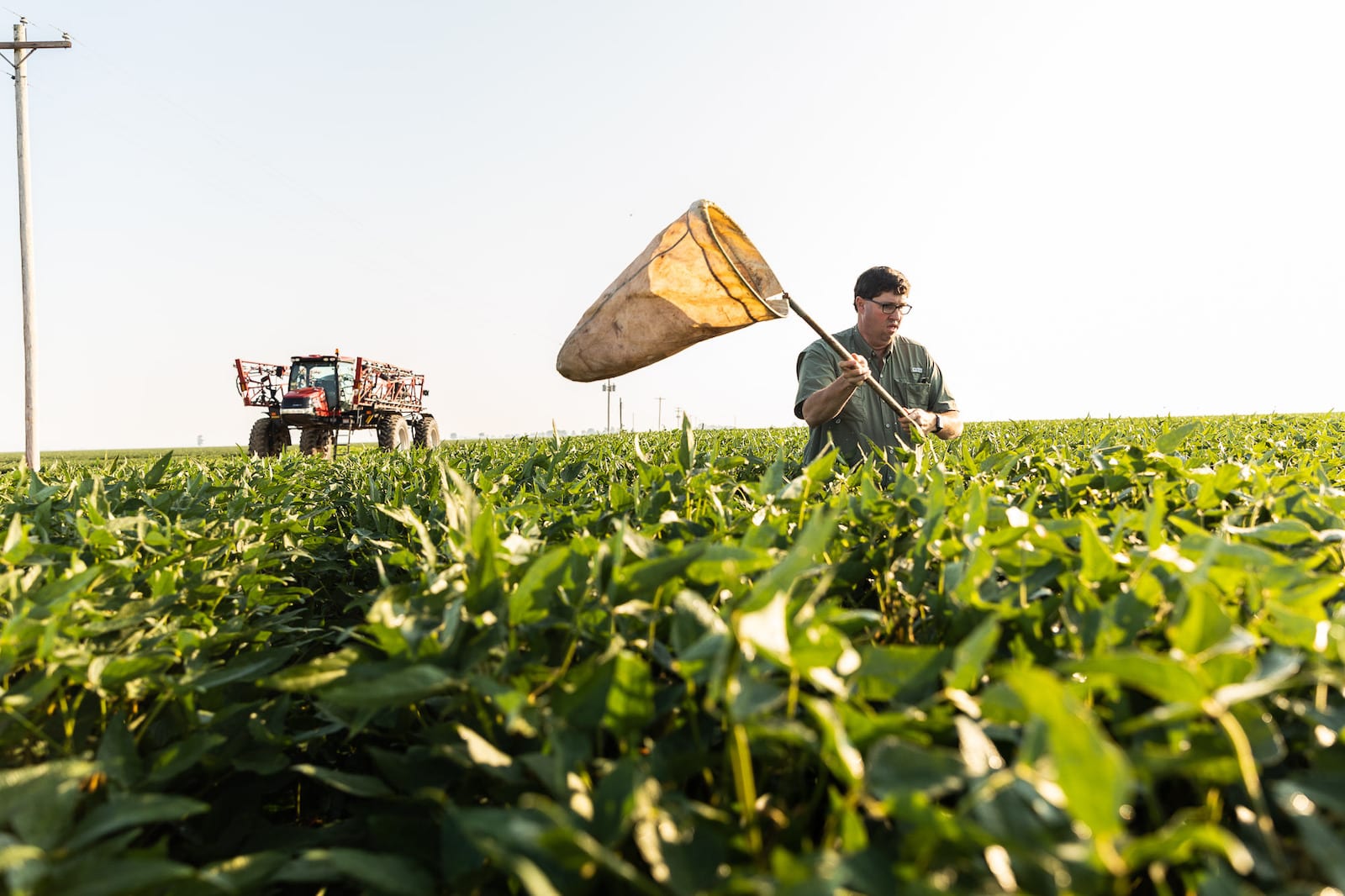Disease and insect damage plus weed competition cause productivity loss from day one. And, the effects of pests are even more costly if farmers move to alternative control methods that don’t meet their, or their customers’, sustainability goals.
Farmers spend a lot of their time addressing threats to their crops, such as weeds, insects and diseases. Pests are an especially difficult challenge because they can evolve — and they have. Some populations of pests have become resistant to the low doses of agrochemicals farmers typically use to manage them while avoiding harmful actions like frequent tillage.
As weeds, insects and diseases continue to build resistance to the tools used to manage them, farmers are looking for assistance in their pesticide management programs. U.S. soybean farmers want to sustainably manage pests — for their land and their customers.
United Soybean Board Helps Farmers Take Action Against Resistance
U.S. soybean farmers invest in Take Action: Pesticide-Resistance Management through the soy checkoff – a farmer-led organization focused on farmer profitability that invests in activities such as research and market development and expansion. Take Action helps advance the checkoff’s sustainability efforts and provides farmers with access to an unbiased, forward-focused approach to sustainably manage pesticide-resistant weeds, insects and diseases in their fields.
The consequences of resistance range from effects on land values to total crop losses — not to mention the risk of runoff and additional emissions from equipment uses that come with additional applications. U.S. Soy invests in sustainably driven information from university researchers, private industry and farmer-led organizations across the U.S., helping farmers manage their pesticide applications.
“The Take Action initiative provides farmers with the science-backed resources to help us make the best pest management decisions possible for our farms with a sustainable future in mind,” said Bubba Simmons III, soy checkoff farmer-leader and soybean farmer from Leland, Mississippi.
Farmers trust Take Action to provide information to support sustainable application and other cultural practices in managing pests and resistance. For example, it’s crucial for farmers to use pesticides as intended. Even accidentally over- or under-applying pesticides outside of the labeled range is illegal. It has also proven detrimental to the environment. Take Action’s resources help turn complicated regulations and research results into sustainable action items for their farms.
U.S. Soy continues to fund this farmer-friendly program due to the crucial need for sustainability practices on all aspects of the farm. Take Action not only helps farmers during each season but also provides resources to help farmers incorporate long-term production practices that reduce the impact of resistance. Implementing sustainable management systems on the farm goes beyond handling pesticide resistance. Sustainability efforts in the fields help care for the environment and provide the best soybeans for customers to use in food — or in the packaging it comes in.
“Taking the time to understand the pesticides we use and apply them responsibly will save us money today with the most efficient balance,” said Simmons. “But also, it will help save all farmers money by keeping these tools available in the long term as we continue to farm sustainably for our customers.”
As resistance continues to build, farmers need unbiased resources to manage what’s in the field sustainably. Sustainability starts on the farm. And, with help from U.S. Soy, U.S. soybean farmers are upholding their promises to grow a sustainable, high-quality crop.
U.S. Soy helps make whatever you make more sustainable. Steps to improve sustainability are taken throughout the soy value chain to create an environmentally-friendly product for end users to sell to consumers. Farm practices such as precision agriculture, pesticide-resistance management, reduced tillage, buffer strips and more all positively impact environmental goals including water quality, soil health and greenhouse gas emissions.
Visit unitedsoybean.org/sustainability-report to download the Soy Sustainability Report.
